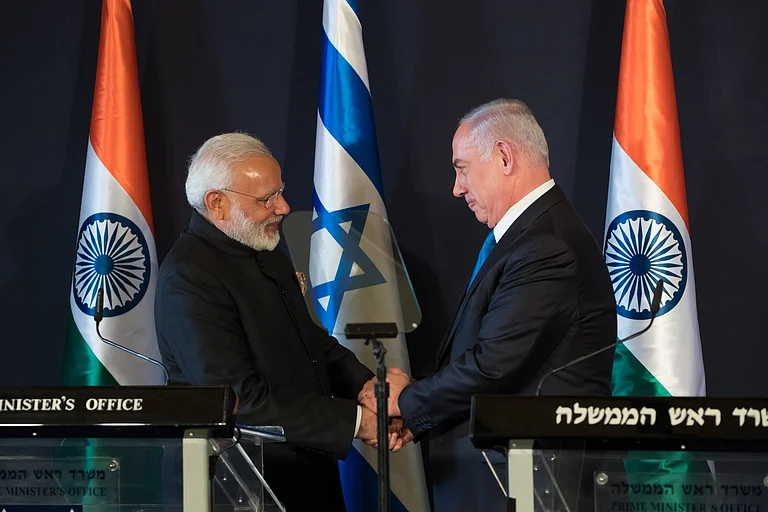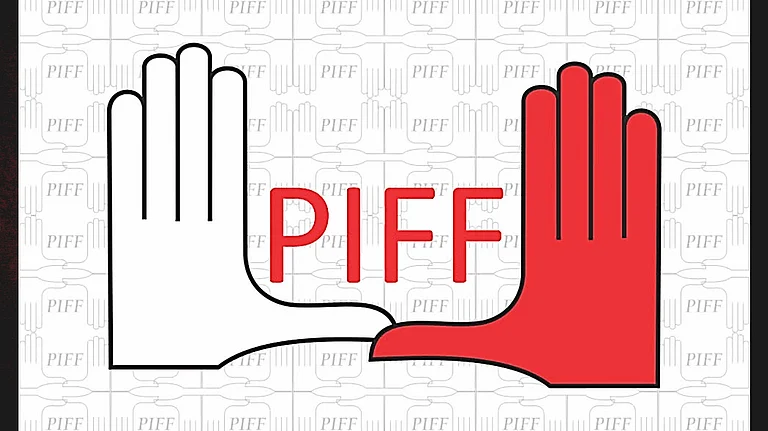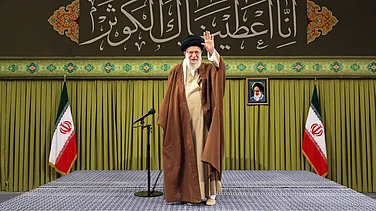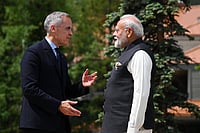
Summary of this article
October 7, 2025 marks two years since Hamas's attack in South Israel killing 1,195 people, including more than 360 young attendees at a music festival.
Following the attack, Israel dropped nearly 100,000 tons of explosives on the Gaza Strip, killing over 67,000 Palestinians.
Last week, U.S. President Donald Trump unveiled a 20-point peace plan, which Israeli Prime Minister Benjamin Netanyahu accepted, and to which, Hamas partially agreed.
It has been two years since Israel's war on Gaza began. October 7 stands out as the day that escalated into a full-scale war on Gaza and its civilians. Triggered by Hamas, which carried out the deadliest attack in Israel’s history, killing 1,195 people, including more than 360 young attendees at a music festival.
In response, Israel launched a military campaign of unprecedented scale, flattening entire neighbourhoods, killing civilians through bombardment, gunfire, and starvation, and devastating the region’s already fragile environment — aspects often overlooked but deeply significant.
Since then, Israel has dropped nearly 100,000 tons of explosives on the Gaza Strip, killing over 67,000 Palestinians.
Israel claims its actions are in “self-defence,” aimed at eliminating Hamas leadership and securing the release of hostages still held in Gaza. International rights groups like Amnesty have said: Israel carrying out 'live-streamed genocide' in Gaza.
Last week, U.S. President Donald Trump unveiled a 20-point peace plan, which Israeli Prime Minister Benjamin Netanyahu accepted, though his history of undermining past negotiations continues to cast a shadow. Hamas has also partially agreed to the proposal, paving the way for initial discussions.
The more contentious issues — including Israel’s demand that Hamas disarm, and Hamas’s insistence on guarantees that the war will not resume after hostages are released — are expected to be addressed in later phases of negotiation.
Since the start of the war, the International Criminal Court has issued arrest warrants for Netanyahu, accusing him of war crimes, including starvation as a method of warfare, and crimes against humanity such as murder, persecution, and other inhumane acts.
Meanwhile, Israel continues to enforce a formal naval blockade on Gaza, in place since 2009, citing the need to prevent weapons smuggling — even as it stands accused of manipulating humanitarian aid and violating international law.
Outlook Magazine has covered Israel’s war on Gaza across multiple issues — writing about the walls surrounding the enclave, about resistance and art, diplomacy, and the voices of Palestinians sharing stories from the besieged land.
In the January 11, 2024 issue, We Bear Witness, we published ‘Zainab’s Gaza Journal’. Seventy-year-old lawyer, researcher, and director Zainab Al Ghonaimy described how her morning ritual began with checking her internet connection — the only way she could stay in touch with her daughter, Farah Barqawi, in Brooklyn. In her journal, she documented the first 11 days of the war as it unfolded.
“I don’t like night anymore because it fills me with fear and reminds me of my mother’s stories about the terrifying ghoul that walks through the alleys at night and devours everything that is alive and moving but never gets satisfied. The ghoul of this war so far has thousands of children, women and the rest elders and men.”
In ‘In Transit: A Palestinian Shares His Journey Of Escape From Gaza’, Zak writes about how Palestinians have been in transit since their grandparents were expelled from their homes during the Nakba of 1948.
In Outlook Magazine’s January 11, 2025 issue, War and Peace, Editor-in-Chief Chinki Sinha reflects in her piece Song for His Disappeared Love on the difficulty of asking a Palestinian journalist to write an account — a journalist who had just lost his wife and two young sons in an Israeli attack.
“How do you ask someone in a place like that for a story? You ask anyway. You are ashamed of sitting at your desk at home. The sky is quiet outside. You suddenly see him in your head, standing beneath the parapet of a destroyed building, holding his phone and looking up to see if a drone is headed towards him.”
That account —‘I Want To Write My Story’: An Unfinished Despatch From Gaza' by Motasem Dalloul — remains unfinished, containing just two haunting sentences: “I lost my wife, two sons, sister, brother and 43 nieces and nephews, in addition to 13 cousins.
This morning, I lost my elderly uncle Akram and four of his siblings in the Israeli bombing of his house, where 20 family members were wounded…”
Outlook is still waiting. “Awaiting, a verb. It is an active state.”
In 'A Palestinian Poet And Indian Author Exchange Notes On War', a Palestinian poet and Indian author exchange notes on war chronicles the correspondence between two authors across time zones—Naveen Kishore, founder of the independent Indian publishing house Seagull Books, and Palestinian poet and author Ghassan Zaqtan. They write to each other about the human cost of war.
The December 11, 2023, issue titled ‘trapped’ examines those left caught in the collective failure to act against unfolding historical crises, as the path to peace in Gaza becomes ever more tortuous, with old strategies buried beneath the debris of new wars.
Brahma Prakash, mentioned in ‘Resistance of Lullaby’, explores maternal lullabies shared between mothers, grandmothers, and children—the sound of lullabies so deep it endures across the landscape, refusing to die even in death.
In ‘How a Dangerous Mix of Theology and Geopolitics Have Led to the Abandonment of Palestinians’, A. Faizur Rahman discusses an overlooked aspect of the October 7 Hamas attack: it gave Israeli Prime Minister Benjamin Netanyahu the pretext to pursue his long-declared goal of annexing all Palestinian territories—a move he had signaled publicly even before the war began.
At Outlook, we continue telling these stories—of loss, endurance, and the longing for peace—hoping the war does not enter its third year. We bear witness, even as the question lingers: what does ‘peace’ mean for a land under siege?























